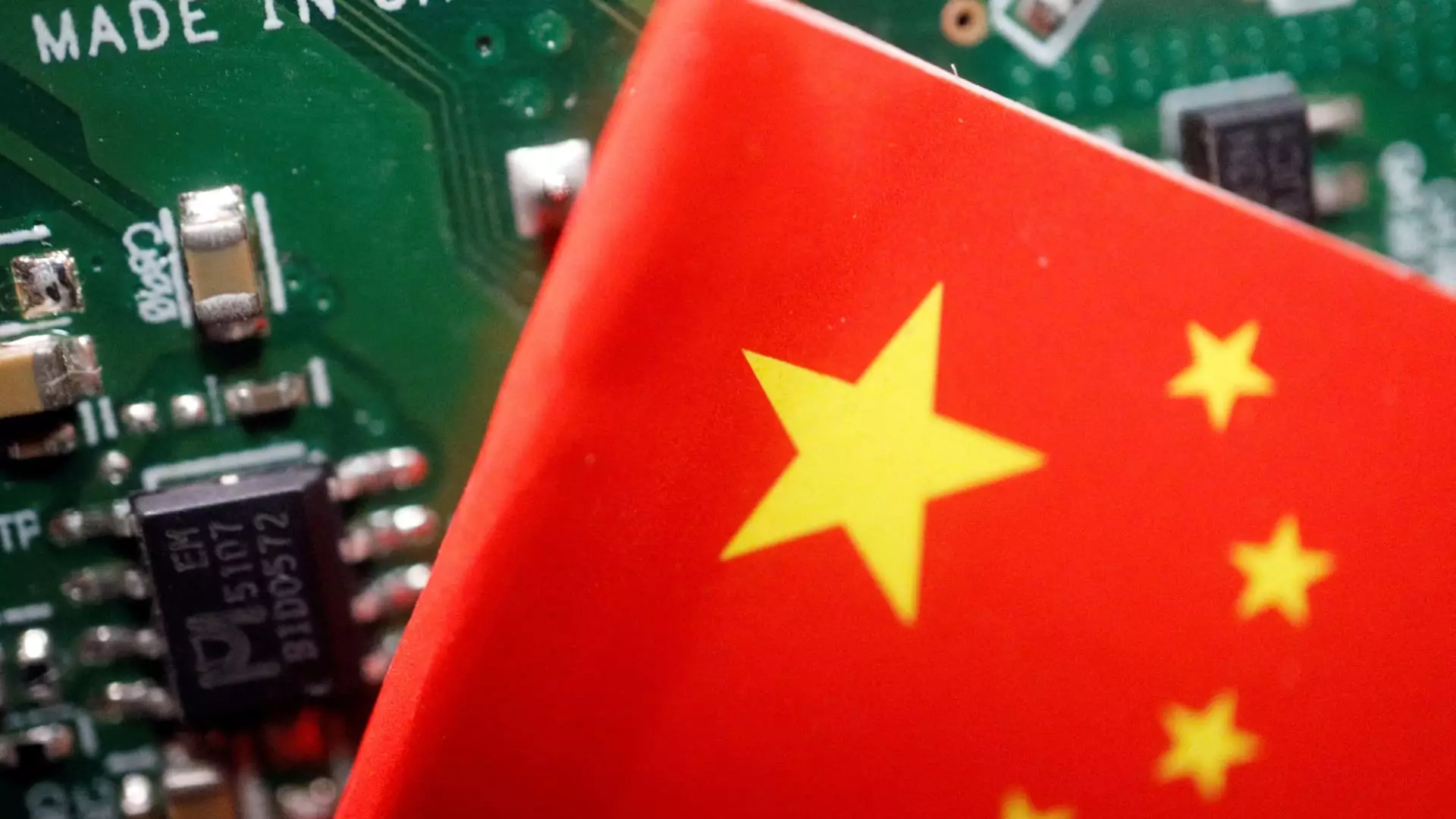The semiconductor market is at a pivotal moment, particularly for major Asian players outside of China. A recent round of U.S. export restrictions aimed at curbing China’s access to advanced semiconductor technology has set off ripples in the industry. However, instead of crumbling under the pressure of these new regulations, Asian chip stocks displayed surprising resilience on a recent Tuesday, with major gains across the board. The events underscore a complex intertwining of geopolitics and markets that continues to shape the technology landscape.
The standout performer in this latest development is Taiwan Semiconductor Manufacturing Company (TSMC), the largest contract chipmaker in the world. Its shares gained an impressive 2.42%, demonstrating a notable confidence among investors despite the looming challenges posed by U.S. export controls. The company’s ability to pivot and adapt has made it a key player in global supply chains, and analysts continue to view it favorably even amidst political tensions. TSMC’s resilience can be attributed to its strong client base, which includes leaders in various tech sectors. The question remains: will they be able to sustain this momentum if the geopolitical landscape continues to shift?
The gains were not limited to Taiwan; Japanese firms also experienced a notable uptick in their stock values. Companies like Tokyo Electron and Lasertec reported gains of 4.7% and 6.7%, respectively. Such an increase suggests that investors are taking a more optimistic view of Japanese chip manufacturers, perhaps indicating belief in their ability to navigate the complexities introduced by the U.S. sanctions. This is further supported by the performance of Softbank, the technology conglomerate with substantial investments in semiconductor design. Its shares surged by 3.6%, pointing toward a broader confidence in the ongoing technological innovations originating from Japan.
While Japanese companies celebrated rising stocks, South Korea’s situation was a tad more complicated. The two largest memory chip manufacturers, SK Hynix and Samsung Electronics, saw their shares increase by 1.8% and 0.9%, respectively. Industry experts like Derrick Irwin, a portfolio manager at Allspring Global Investments, articulated the nuanced impact of the high-bandwidth memory chip controls on these firms. Irwin speculated that while there would be some effect on their sales in China, the overall impact might not significantly hind; they could potentially redirect that demand toward the U.S. market. This ability to pivot sales strategies illustrates a certain degree of adaptability that may prove crucial as market conditions evolve.
On the other side of the spectrum lies China, where the implications of U.S. restrictions are becoming ever more tangible. Companies like Naura Technology Group and ACM Research witnessed stocks decline by 3% and 1%, respectively, signaling concerns over their ability to thrive under the new limitations. The fact that the Semiconductor Manufacturing International Corporation (SMIC), China’s largest chipmaker, fell 1.5% in the Hong Kong market further emphasizes the position of these firms. The export restrictions are aimed not only at diminishing China’s semiconductor capabilities but also at addressing national security concerns from the U.S. perspective.
U.S. Secretary of Commerce Gina Raimondo framed the new export controls as the “culmination of the Biden-Harris Administration’s targeted approach,” hinting at a prolonged period of tight restrictions that could shape the semiconductor landscape for years to come. Alongside the addition of 140 companies to the export controls list, restrictions on manufacturing equipment and software tools used in semiconductor development raise questions about the long-term implications for both U.S. and Asian firms.
The path ahead for the semiconductor industry will undoubtedly be complex, characterized by both challenges and opportunities. Emerging technologies and shifting consumer demands may influence company strategies as they navigate the changing geopolitical landscape. Success in this arena will likely require not only technical proficiency but also agility and strategic foresight. As the semiconductor industry continues to grapple with the consequences of escalating trade tensions, the resilience shown by stocks outside of China speaks volumes about the tenacity of the sector in uncertain times.

